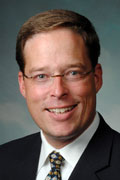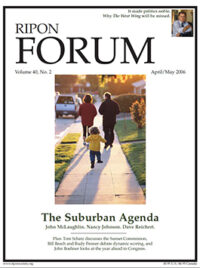
When Congress enacted the Terrorism Risk Insurance Act (also known as TRIA) in 2002, the government-backed terrorism reinsurance program it established was designed as a temporary stopgap to give insurers time to regroup and sort out the complexities of dealing with terrorism risk. The insurance industry was still reeling from the effects of the then-costliest disaster in U.S. history — at least $33 billion in insured losses. President Bush proclaimed that America was engaged in a protracted war with a shadowy but sophisticated global terror network, and warned that the country should brace for more attacks.
In 2005, however, proposals to extend the TRIA program beyond its original three-year lifespan caused some federal policymakers to conclude that the insurance industry had grown too comfortable with TRIA. Opponents argued that by providing government reinsurance for this particular risk, TRIA made taxpayers liable for insurer losses that would ordinarily be covered under private reinsurance contracts.
This argument was based on the theory that the same law of supply and demand that governs other economic sectors must apply to insurance as well, not realizing that insurers are constrained by regulator-mandated price controls and underwriting restrictions.
Some officials further implied that if TRIA were left to expire, the invisible hand of the market would generate a supply of reinsurance—that is, the insurance that allows primary insurers to transfer a portion of the risks they insure—sufficient to meet the total demand for reinsurance. Under TRIA, insurers had in fact purchased billions of dollars’ worth of private terrorismreinsurance just to cover their TRIA deductibles, which for some companies ran as high as $3 billion. But reinsurers made clear that they had little appetite for taking on additional terrorism risk. Indeed, the reinsurance industry was among the strongest proponents of TRIA renewal, a fact that contradicts the assertion that TRIA was depriving them of market share as TRIA critics maintained. Because these opponents had the power to prevent either an extension of TRIA or an overhaul of the law, supporters of an ongoing program – a bipartisan majority of Congress – had to settle for a two-year extension of TRIA.
Today the National Association of Mutual Insurance Companies (NAMIC) is working with other industry leaders to fashion a long-term solution to the seemingly intractable problem of terrorism risk. Our principal objective is to create new mechanisms to maximize the role of the private sector to the greatest extent possible. Some of the ideas being studied include innovative investment vehicles that would tap the capital markets, as well as various types of insurer risk-pooling arrangements. At the same time, our understanding of the nature of terrorism risk prevents us from indulging the fantasy that an effective solution can be found that precludes government participation.
NAMIC has developed a statement of principles that recognizes that the way to responsibly maximize private sector capacity for insuring against terrorism risk is to attract as many individual insurers as possible into the terrorism insurance market. To that end, we urge Congress to preempt state laws that prevent the free market from setting adequate rates for terrorism insurance. We also call upon Congress to provide a permanent reinsurance program to supplement the private reinsurance market, with insurer deductibles set at levels that would enable the insurance industry to continue to meet its financial obligations and perform its vital economic role after paying off its share of losses following a terrorist attack. We also recommend the establishment of a permanent event trigger set at no more than $50 million. A higher trigger would drive small and medium sized insurance companies from the market because reinsurance costs would be too high, forcing these insurers to either exclude terrorism coverage or charge premiums that many of their policyholders couldn’t afford. And because there are limits to the amount of loss exposure that even very large insurers can absorb, no one should assume that large carriers would fill the void created by the middle market’s exit.
…our understanding of the nature of terrorism risk prevents us from indulging the fantasy that an effective solution can be found that precludes government participation.
That’s because in addition to being a man-made risk that is deliberately unpredictable, terrorist attacks are intended to produce large-scale catastrophes for which losses tend to be correlated. In other words, the terrorist’s objective is to inflict damage that results in thousands of concurrent losses whose aggregate cost reaches staggering sums. If too much of this risk is covered by too few insurers, a single event could bankrupt a company, leaving it unable to pay claims. For this reason, insurers prudently attempt to avoid overexposure to extreme events such as terrorism, earthquakes, and hurricanes.
Because the frequency and magnitude of terrorist attacks is less predictable than natural disasters, the need to avoid overexposure to this maddeningly capricious risk is especially great. Public policy should therefore attempt to establish conditions under which many different insurers are capable of bearing a portion of terrorism risk. Maintaining a government reinsurance backstop is essential to achieving that objective.
Charles M. Chamness is President and CEO of the National Association of Mutual Insurance Companies, a trade association of more than 1,400 member companies.




